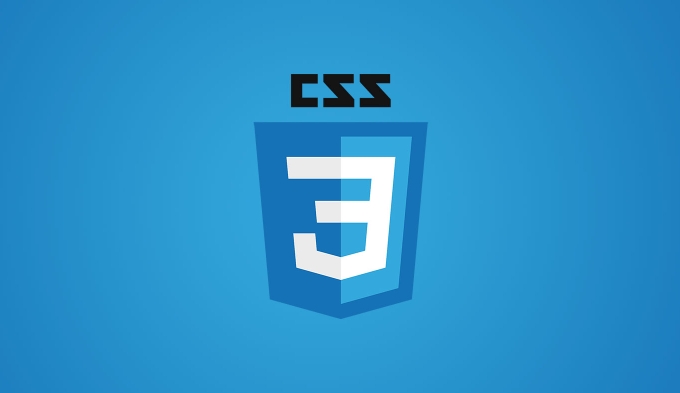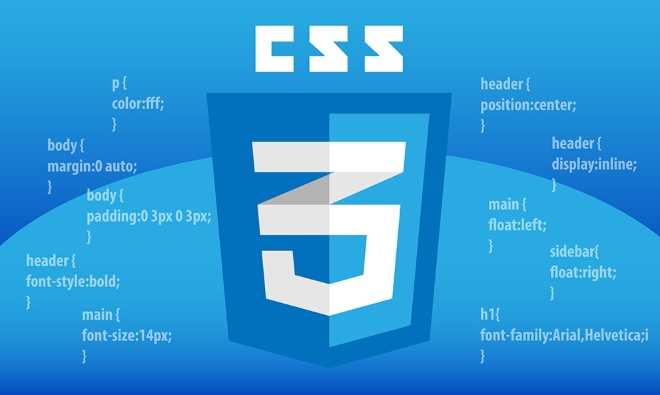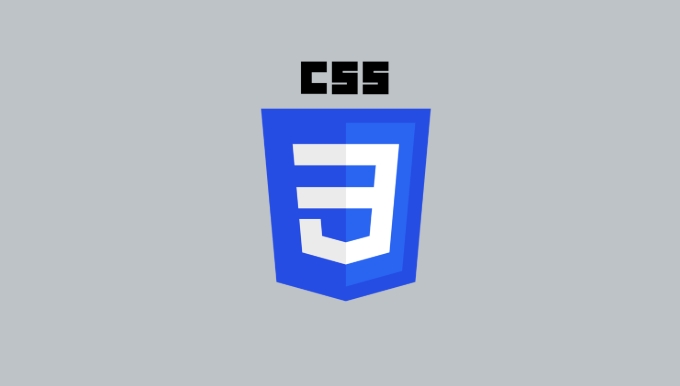Modal windows and light boxes can implement basic functions through pure CSS without JavaScript. 1. Use the :target pseudo-class to control the display status based on URL anchor points. The advantage is that there is no script required, but the mask cannot be closed; 2. Use hidden checkbox and label to achieve more flexible interaction, such as clicking mask to close and adding animation transitions; 3. Pay attention to optimization details such as compatibility, accessibility (such as adding aria-label), and preventing background scrolling (using overflow: hidden). The two methods have their own applicable scenarios, suitable for static pages or lightweight projects.

Modal windows and lightboxes are common interactive components in web pages, which are used to pop up a translucent mask layer on the current page and display additional content. Implementing them does not actually require complex JavaScript, and using pure CSS can also achieve basic functions, especially suitable for static pages or lightweight needs.

Basic structure and triggering method
To create a modal window, the HTML structure usually includes:

- Trigger button (such as "click to open")
- Mask layer (overlay or backdrop)
- Pop-up window content area (modal content)
Use CSS to control the display of hidden state, which can be controlled by :target pseudo-class or combined with the checked state of checkbox . :target is the easiest way, but it requires an anchor point in the URL; while checkbox is more flexible and does not change the address bar.
<a href="#modal">Open pop-up window</a>
<div id="modal" class="modal">
<div class="modal-content">
<a href="#">Close</a>
<p>This is the pop-up content</p>
</div>
</div>Style and interactive control
This part mainly relies on CSS to complete visual expression and interactive logic.

Use:target to switch
This method uses anchor points to activate pop-ups, and when the URL contains #modal , the corresponding element will apply styles.
.modal {
display: none;
}
.modal:target {
display: block;
position: fixed;
top: 0; left: 0;
width: 100%; height: 100%;
background-color: rgba(0,0,0,0.5);
}The advantage of this method is that it does not use JS at all, and the disadvantage is that it cannot close the pop-up window by clicking on the mask unless it adds a link to another location on the page.
Use checkbox to control status
A more modern approach is to use hidden checkbox and label combinations, which can support click mask closing, animation transition and other effects.
<input type="checkbox" id="modal-toggle" hidden>
<label for="modal-toggle" class="modal-trigger">Open pop-up window</label>
<div class="modal">
<label for="modal-toggle">Close</label>
<div class="modal-content">
<p>This is the content</p>
</div>
</div>CSS control display logic:
.modal {
display: none;
}
#modal-toggle:checked ~ .modal {
display: block;
}This method is more extensible and easier to click to close with animation and mask layer.
Notes and optimization suggestions
- Compatibility and experience : The pure CSS solution, while lightweight, may not be fully supported on older browsers (such as IE), or may lack transition animations.
- Accessibility (a11y) : Adding
aria-labelorrole="dialog"can help screen readers recognize pop-up content. - Click Mask to close : If you want to click Mask to close the pop-up window, you can use a label to cover the entire mask layer and bind it to the checkbox.
- Prevent background scrolling : When pop-up window is displayed, adding
overflow: hiddento the body can prevent the content behind it from scrolling.
Let's summarize
The core of using CSS to create a modal window or light box is to control the switching method of display status. :target method is suitable for fast implementation, while the checkbox label is more suitable for complex scenarios. Although these methods do not completely replace JS's flexibility, they are sufficient for static pages or lightweight projects.
Basically, that's not difficult to implement, but some details are easy to ignore, such as the position of the close button, the response range of the mask layer, and the problem of mobile terminal adaptation.
The above is the detailed content of Creating modal windows or lightboxes with css. For more information, please follow other related articles on the PHP Chinese website!

Hot AI Tools

Undress AI Tool
Undress images for free

Undresser.AI Undress
AI-powered app for creating realistic nude photos

AI Clothes Remover
Online AI tool for removing clothes from photos.

Clothoff.io
AI clothes remover

Video Face Swap
Swap faces in any video effortlessly with our completely free AI face swap tool!

Hot Article

Hot Tools

Notepad++7.3.1
Easy-to-use and free code editor

SublimeText3 Chinese version
Chinese version, very easy to use

Zend Studio 13.0.1
Powerful PHP integrated development environment

Dreamweaver CS6
Visual web development tools

SublimeText3 Mac version
God-level code editing software (SublimeText3)

Hot Topics
 What is 'render-blocking CSS'?
Jun 24, 2025 am 12:42 AM
What is 'render-blocking CSS'?
Jun 24, 2025 am 12:42 AM
CSS blocks page rendering because browsers view inline and external CSS as key resources by default, especially with imported stylesheets, header large amounts of inline CSS, and unoptimized media query styles. 1. Extract critical CSS and embed it into HTML; 2. Delay loading non-critical CSS through JavaScript; 3. Use media attributes to optimize loading such as print styles; 4. Compress and merge CSS to reduce requests. It is recommended to use tools to extract key CSS, combine rel="preload" asynchronous loading, and use media delayed loading reasonably to avoid excessive splitting and complex script control.
 How to use Lotties in Figma
Jun 14, 2025 am 10:17 AM
How to use Lotties in Figma
Jun 14, 2025 am 10:17 AM
In the following tutorial, I will show you how to create Lottie animations in Figma. We'll use two colorful designs to exmplify how you can animate in Figma, and then I'll show you how to go from Figma to Lottie animations. All you need is a free Fig
 Breaking Boundaries: Building a Tangram Puzzle With (S)CSS
Jun 13, 2025 am 11:33 AM
Breaking Boundaries: Building a Tangram Puzzle With (S)CSS
Jun 13, 2025 am 11:33 AM
We put it to the test and it turns out Sass can replace JavaScript, at least when it comes to low-level logic and puzzle behavior. With nothing but maps, mixins, functions, and a whole lot of math, we managed to bring our Tangram puzzle to life, no J
 External vs. Internal CSS: What's the Best Approach?
Jun 20, 2025 am 12:45 AM
External vs. Internal CSS: What's the Best Approach?
Jun 20, 2025 am 12:45 AM
ThebestapproachforCSSdependsontheproject'sspecificneeds.Forlargerprojects,externalCSSisbetterduetomaintainabilityandreusability;forsmallerprojectsorsingle-pageapplications,internalCSSmightbemoresuitable.It'scrucialtobalanceprojectsize,performanceneed
 Does my CSS must be on lower case?
Jun 19, 2025 am 12:29 AM
Does my CSS must be on lower case?
Jun 19, 2025 am 12:29 AM
No,CSSdoesnothavetobeinlowercase.However,usinglowercaseisrecommendedfor:1)Consistencyandreadability,2)Avoidingerrorsinrelatedtechnologies,3)Potentialperformancebenefits,and4)Improvedcollaborationwithinteams.
 CSS Case Sensitivity: Understanding What Matters
Jun 20, 2025 am 12:09 AM
CSS Case Sensitivity: Understanding What Matters
Jun 20, 2025 am 12:09 AM
CSSismostlycase-insensitive,butURLsandfontfamilynamesarecase-sensitive.1)Propertiesandvalueslikecolor:red;arenotcase-sensitive.2)URLsmustmatchtheserver'scase,e.g.,/images/Logo.png.3)Fontfamilynameslike'OpenSans'mustbeexact.
 What is Autoprefixer and how does it work?
Jul 02, 2025 am 01:15 AM
What is Autoprefixer and how does it work?
Jul 02, 2025 am 01:15 AM
Autoprefixer is a tool that automatically adds vendor prefixes to CSS attributes based on the target browser scope. 1. It solves the problem of manually maintaining prefixes with errors; 2. Work through the PostCSS plug-in form, parse CSS, analyze attributes that need to be prefixed, and generate code according to configuration; 3. The usage steps include installing plug-ins, setting browserslist, and enabling them in the build process; 4. Notes include not manually adding prefixes, keeping configuration updates, prefixes not all attributes, and it is recommended to use them with the preprocessor.
 What are CSS counters?
Jun 19, 2025 am 12:34 AM
What are CSS counters?
Jun 19, 2025 am 12:34 AM
CSScounterscanautomaticallynumbersectionsandlists.1)Usecounter-resettoinitialize,counter-incrementtoincrease,andcounter()orcounters()todisplayvalues.2)CombinewithJavaScriptfordynamiccontenttoensureaccurateupdates.






